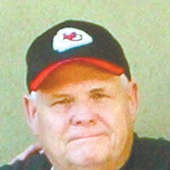'Downton Abbey,' and class division
Last Sunday, PBS aired the final episode of "Downton Abbey." As is always the case when a favorite long running series ends, this final show left me with mixed emotions. The past six seasons gave us insight as to who and what we came from, and perhaps where we are heading.
For those of you who have not watched any episodes of this show here is some background. The series is part of the "Masterpiece" programing on PBS. The show's name came from the location used in the series, an English country estate.
The show began six seasons ago, set in the year 1912. The first group of characters were the Crawley family, led by the head of the family, the Earl of Grantham. The remainder of the cast consisted mostly of the servants at the estate.
Love, marriage, war, death, and societal changes, follow the characters through 12 years, beginning with the historical sinking of the Titanic, and ending on New Years Eve 1925.
If you have never watched this series, you have missed out on one of televisions most popular worldwide series. That is perhaps the single most amazing thing one can say about this show. It appealed to millions of people in practically every country.
I won't give away any more of the plot for this series. You can easily see reruns of all the episodes in a variety of methods. I promise you will find this to be one of the most entertaining experiences you have ever witnessed.
There are many themes in the series, but for me the most interesting concerned the many social changes, that affected all the characters during the series. These changes are relevant for all of us still today.
Although England is our "Mother Country," our social structures are vastly different. England has a monarchy and a lengthy list of nobility. We Americans formed our country in direct opposition to the ideas and practices of the "Class System."
So, the question begs to be asked, "why would a show that depicts such rigid class structure, be so popular in America and other countries?" If you can answer that question, you could become very famous, and write a book on the subject.
Classism has existed in societies since the beginning of time. In what we refer to as "western civilization" there were three basic classes or "estates." They were the nobility, the church, and the peasants.
Wealth and power were only available to the first two classes. The first son in a noble family would receive the family title, land, money, and power. The second son was often sent to the church, which also owned vast lands and wealth. The peasants were basically serfs or semi-slaves. They were not allowed to move out of their class position.
The peasants had no land. They were rarely educated, and the only skills they were trained for, were for use on large noble owned estates like Downton Abbey.
This class system was transported to the new world in many places, but not in our country. Latin America was settled mostly by land grants to the nobility. The peasants had no more opportunities than their counterparts in Europe.
In our country, most of our settlers were simple homestead frontier types. They came from a variety of backgrounds, including indentured servants and criminals. They depended upon no lord or estate for their well-being. They had to take care of themselves, and they held a natural resentment towards a despotic king, who ruled from across an ocean.
Downton Abbey shows the gradual changes that began to occur within their class system, particularly during and after the First World War. A common theme in the series is the advancement of characters. Tom, the family chauffeur, marries one of the family's daughters. His transformation during the years is central in describing the social changes in England.
As I watched the final episode of the series, I began to think about the changes that are happening in our own country currently. For most of our history, Americans felt that they could better their lives, regardless of their beginning place in life.
In recent times, that viewpoint has changed. The middle class that emerged in the period after World War II is increasingly frustrated at their lack of opportunities.
We are the richest and freest country on earth, but there is an undercurrent of distrust towards our government these days. These feelings can be traced to several simple changes.
The middle class used to be able to raise and educate their families, on the incomes they received. Today it is impossible for the average family to send their kids to college, without incurring ridiculous debt.
The vast wealth of this country is currently held by a small group of people we refer to as the 1 percent. In our past history, a "rags to riches" scenario, where an American from poor beginnings could rise to the top, seems a lot less likely now.
I suspect that is at the core of the current unrest in our country and our political scene. Two of the most popular politicians, Donald Trump and Bernie Sanders, appeal to this unrest. They have extremely different viewpoints on how to offer change, but there is no denying that their popularity is due to the disillusionment of our citizens.
Like in Downton Abbey, there is change coming. The middle class of America wants to be relevant again. They want to feel they have real opportunity to advance their economic wellbeing.
There is hope for us. We are a country that was built on the ability to move upward. Every few decades, we seem to have to be reminded of this. This next election will go a long ways in deciding just how that change will take place.
Downton Abbey concluded its run with a happy ending for most of its characters. Let's hope the same is headed our way too.

